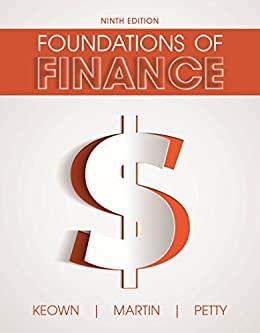The G. Wolfe Corporation is examining two capital-budgeting projects with 5-year lives. The first, project A, is
Question:
The G. Wolfe Corporation is examining two capital-budgeting projects with 5-year lives. The first, project A, is a replacement project; the second, project B, is a project unrelated to current operations. The G. Wolfe Corporation uses the risk-adjusted discount rate method and groups projects according to purpose, and then it uses a required rate of return or discount rate that has been preassigned to that purpose or risk class. The expected cash flows for these projects are given here:
PROJECT A PROJECT B
Initial investment....................................-$250,000...............-$400,000
Cash inflows:
Year 1..................................................$130,000................$135,000
Year 2.....................................................40,000..................135,000
Year 3.....................................................50,000..................135,000
Year 4.....................................................90,000..................135,000
Year 5...................................................130,000..................135,000
The purpose/risk classes and preassigned required rates of return are as follows:
PURPOSE REQUIRED RATE OF RETURN
Replacement decision...............................................12%
Modification or expansion of existing product line...............15
Project unrelated to current operations.............................18
Research and development operations..............................20
Determine each project's risk-adjusted net present value.
Net Present ValueWhat is NPV? The net present value is an important tool for capital budgeting decision to assess that an investment in a project is worthwhile or not? The net present value of a project is calculated before taking up the investment decision at... Corporation
A Corporation is a legal form of business that is separate from its owner. In other words, a corporation is a business or organization formed by a group of people, and its right and liabilities separate from those of the individuals involved. It may... Discount Rate
Depending upon the context, the discount rate has two different definitions and usages. First, the discount rate refers to the interest rate charged to the commercial banks and other financial institutions for the loans they take from the Federal...
Step by Step Answer:

Foundations Of Finance
ISBN: 9780134083285
9th Edition
Authors: Arthur J. Keown, John H. Martin, J. William Petty





